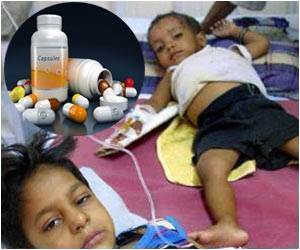Every premature death should be considered a rebuke. To prevent that, to fight for health as a human right, should be the role of the more conscientious.
Every premature death should be considered a rebuke. But millions across the world die before they should, thanks to skewed healthcare. To prevent such deaths, to fight for health as a human right, should be the role of the more conscientious, says Dr.Paul Farmer, who travels the planet to organize and provide medical treatment for people living in poverty.
A professor of Global Health and Social Medicine at Harvard Medical School, Dr. Farmer is also a founding director of the Partners In Health that can be seen working in such extremely backward pockets like Lesotho in the African continent or Haiti nearer home.In Lesotho, for instance, it’s difficult to get around. Villages in the mountain kingdom are sometimes accessible only by single-engine propeller aircraft or on horseback. There are often no roads in rural areas and patients must walk hours to clinics, which are extremely difficult for the critically ill, and transporting patients and medical supplies is often an ordeal.
The nonprofit organization Riders for Health is working to help change this by donating ultra-rugged motorcycles for PIH Lesotho staff to use. The vehicles are expected to greatly enhance health-care delivery, allowing health workers to regularly and reliably visit communities previously inaccessible except on foot.
In their holiday message, Ophelia Dahl, President and Executive Director of the Partner in Health and Dr. Farmer recounted a Haiti experience:
“It was 4:00 in the morning on September 3 when one of the assistant social workers called me to tell me that the city of Hinche was flooded. The first thing that ran through my mind was to get up and go search for our HIV patients.” - Ermaze Louis Pierre
Ermaze works as a social worker at our hospital in Hinche, Haiti, and she is just one of many whom we count upon to ensure that not only our patients but also their communities have access to the care and services they need.
Advertisement
Drawing on such stories, Dr.Farmer told the NPR radio, a respected alternative media in the US, “The fight for health as a human right, a fight with real promise, has so far been plagued by failures. Failure because we are chronically short of resources. Failure because we are too often at the mercy of those with the power and money to decide the fates of hundreds of millions. Failure because ill health, as we have learned again and again, is more often than not a symptom of poverty and violence and inequality and we do little to fight those when we provide just vaccines, or only treatment for one disease or another.”
The current crisis, particularly, would mean that the people his Partners In Health serve may fall even deeper into poverty, placing them at increased risk of disease; while at the same time fund flow could dry up.
But Dr. Farmer and his colleagues remain optimistic: “If Marie’s accompagnateur can wade through the floodwaters to guarantee that she does not miss a dose, even after his own house had been washed away, we must do our utmost to make sure that our programs and services are not cut even in the midst of this worldwide economic crisis.”
They say the goal should be nothing less than the refashioning of our world into one in which no one starves, drinks impure water, lives in fear of the powerful and violent, or dies ill and unattended.
Source-Medindia
GPL/SK








